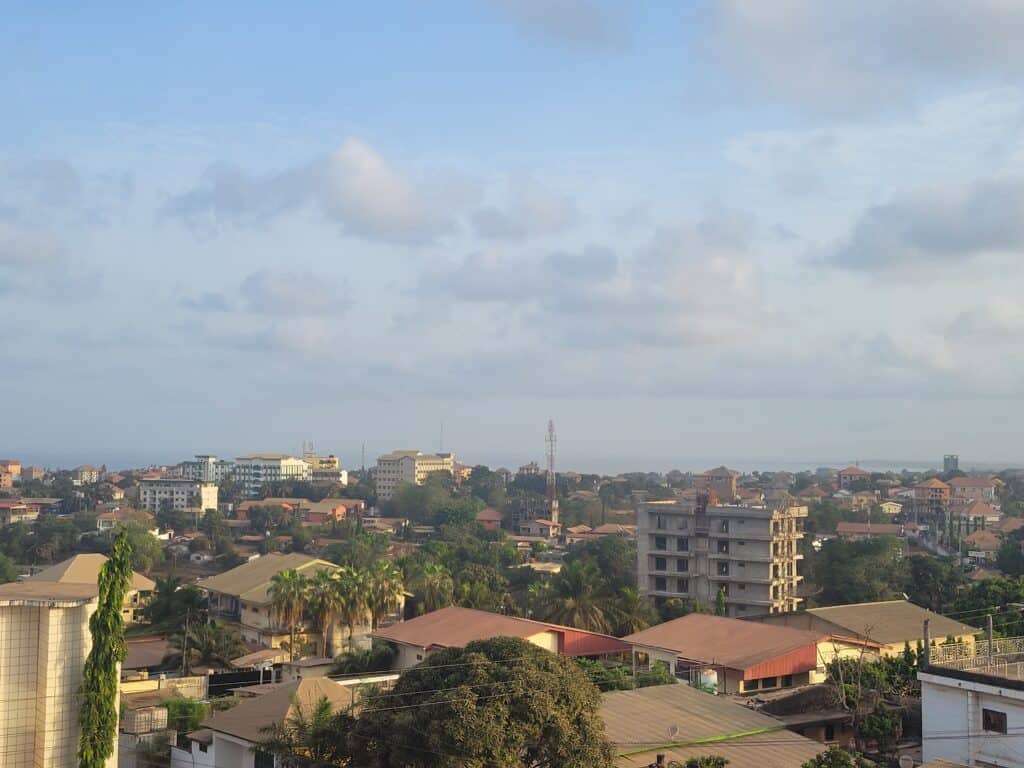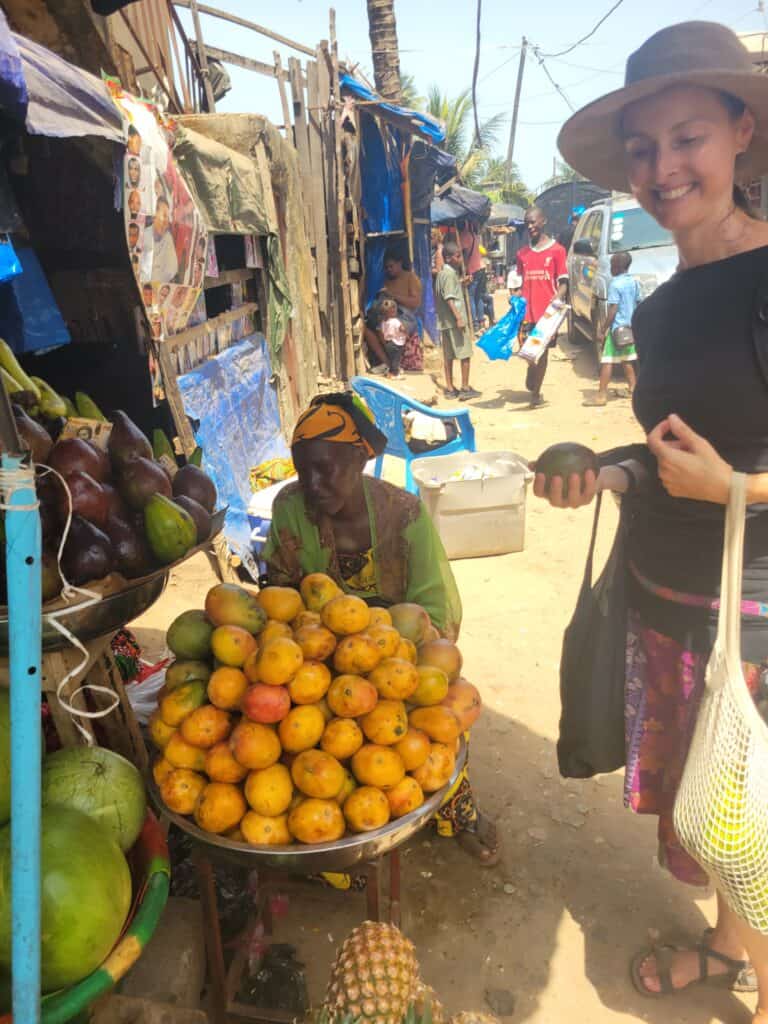Want to know what it’s like to spend a week in Conakry? Is it safe? Or are the locals welcoming? ‘Conakry – Helpful Tips for Visitors’ is our personal experience exploring this City in 2024. We share our insights on where to stay, where to eat and drink, and things to see and do. ‘Conakry – Helpful Tips for Visitors’ reflects our travel style and aims to provide useful things to know before visiting this obscure destination.
Conakry, it’s not a place for everyone. It’s hot, dusty, and packed with traffic, fumes and smog. Pollution and burning piles of rubbish line the streets. Military and Police are never far away. Power cuts can last all day. There’s no amazing sights or world class dining options here. It’s a tough place. But Conakry is home to its people. They go to work or school, make a living, care for their families. They go out for dinner and visit friends on the weekend. At first glance things look completely different, but spend some time here and you will see that many things are much the same. Love it or hate it, Conakry won’t care. Life will go on.
Why go to Conakry?
Conakry is Africa. ‘T.I.A. – This is Africa’. Its wild, hectic and untamed. Come here to admire and respect the individuals that call it home. Guinea as a country has much to offer, and many people avoid Conakry completely and head inland to the waterfalls and countryside, which is understandable. But some of the most memorable and valuable experiences come from the least expected places and situations. Conakry has a lot to give, in a different way. Come here for an unforgettable experience.
- Country: Guinea
- Capital: Conakry
- Best time to visit: November – December (wet season is June to September)
- Budget/Mid-Range/Couple: AU$100 per day
- Currency: Guinean Franc (GF55,000 = AU$1)
- Language: French
- Visa: Yes (e-visa)
- Difficulty: 4 (1-basic & 5-challenging)

Where to stay in Conakry
Kaloum is a good area to stay. There is some nice eating options, a hand full of Embassy’s if you need visas, and a range of accommodation options. Hotel M’Iys has comfortable rooms, 24hr electricity and wifi. The ferry to Freetown also departs from this area if you are heading there.
Kipe is a popular neighbourhood in the North, with good transport connections if you are heading inland, and only twenty minutes from the airport. It is home to Parkson Mall, a tasty Lebanese restaurant, and plenty of roadside fruit and vegetable stalls.
Where to eat and drink in Conakry
Street food is everywhere around the city. The standards can vary and the environment can sometimes seem uninviting. They usually start setting up around lunchtime, and continue until sold out. Additionally, fruit and vegies can be found along the street on most blocks. Most local restaurants were closed during our visit as it was Ramadan. We found nice restaurants in both Kaloum and Kipe that were open as usual.
- Get to Istanbul restaurant and pâtissier in Kaloum (lots of options, owner speaks English)
- Check out 7Days Indian restaurant in Kaloum (open every day from 11am)
- Don’t miss 7-Eleven Lebanese restaurant in Kipe (Good size dishes, falafel plate was delicious. Wifi)
Things to see and do in Conakry
Immerse yourself Get amongst it. This city is big and the main roads are hectic. Walk along quiet, dusty back streets and interact with the locals and street vendors who live there. It can feel like a harsh city, but the tough exterior is softened when you connect with the people.
Centre d’Art Acrobatique Unbelievable acrobatic performance.
Witnessing Friday afternoon prayers is a truly memorable experience. The streets fill with people who perform their prayers wherever they can find room for their prayer rug.
Getting around Conakry
It’s a massive place. Getting around is slow going. The quickest, and also the most dangerous, is motorbike taxi. They zoom in and out of traffic. Make sure you find one with a spare helmet. Taxi is the safest option. Prices are negotiated before you get in. Anywhere between GF100,000-200,000 for a half hour trip. The back streets offer safety from the crazy traffic to walk short distances.

Getting to Conakry
Conakry has flight connections with Europe, Dubai and other African countries. There is a ferry service with Freetown, Sierra Leone (3-4 hours, Sunday, Wednesday and Friday. AU$140pp). Taxis leave everyday for neighbouring Guinea-Bissau and Sierra Leone.
Useful things to know before visiting Conakry
Conakry has a large Muslim population. Respect their customs.
There is often no electricity. Confirm with your accommodation that they have a back up generator.
There’s plenty of pollution and rubbish.
It’s very busy.
Not everyone will be friendly and welcoming, but be the person that you want them to be.
Forget about public toilets.
Money is exchanged on the street. People will offer their services randomly as you pass by.
Final thoughts on travelling in Conakry
Conakry is a unique beast. It’s not like its neighbouring countries. It’s raw, buzzing and alive. Keep up or you will get left behind. It’s not pretentious. It’s not ashamed. It won’t change for you. But come with an open mind, and appreciate the experience. You won’t forget it anytime soon.
